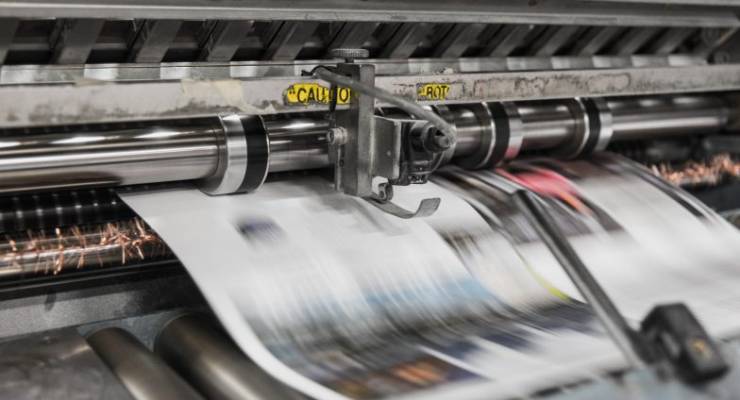
This story is part of Inq’s series on the media trial of Geoffrey Rush. Read the full series here from Friday, July 3.
In trying to bring one of Australia’s most famous actors to justice for alleged “inappropriate behaviour”, the nation’s brashest newspaper not only put itself on trial but set up a prosecution of tabloid journalism.
The implication that tabloid journalism (which is more about style than the shape of a printed page) is a lesser form of publication has coloured the entire defamation case brought by acclaimed actor Geoffrey Rush against The Daily Telegraph.
The result of the trial — the Telegraph today losing its appeal and being forced to pay Rush $2.9 million in damages — may show what happens when tabloid journalism is practised cavalierly.
But this need not be so.
Good tabloid journalism is loaded with rigour and care to avoid the characterisation that comes from its association with the grubby Fleet Street tabloids whose methods were fully exposed a decade ago.
I spent three years as deputy editor of The Daily Telegraph when it was run by Australia’s most notorious tabloid editor, Col Allan. He oversaw a cheeky Tele that sometimes crossed the line, but he did it with a waggishness, wit and a healthy dose of caution.
Allan liked economy of words but not words like “spat”, for example, because he believed they played to the prejudices of his critics. “The broadsheets can get away with it,’’ he raged at me one day. “We can’t. Even ‘altercation’ is better than ‘spat’ here.’’
He also liked stories to have sources, multiple sources, knowing that tabloids did not have the natural authority that allowed broadsheet journalists to rely on unnamed sources.
On any reading this is where the journalism of Tele failed in the Rush case. It went to print relying principally on one source that turned out to be the Sydney Theatre Company, which cannot claim any pride in this affair.
Other sources were all secondary or hearsay to the allegations against Rush.
The reporter did the best he could but, in the end, had a single on-the-record source to tear down the reputation of a celebrated actor who was able to line up a cavalcade of character references, all bearing witness to not only his credibility but the lack of credibility of a tabloid journalist — a gossip columnist, no less!
The result of this case is a verdict against one newspaper and the way its journalism did not properly cover this story. It made the mistake of relying on a single source and then compounded it by doubling down on the story and trying to find more sources on the run.
It’s worth noting that Australia’s most successful tabloid newspaper and Tele stablemate the Herald Sun did not publish the story and warned its reporters against even referring to it on social media.
Good journalism is good journalism whether practised in the tabloid press, the broadsheet press, on radio, TV, social media or online. It is underpinned by a commitment to finding the truth and retelling it fairly.
This can often be forgotten by media outlets as they engage in an arms race to be noticed in the “look-at-me, look-at-me” world of the 21st century.
Corroboration matters more than ever in the era of fake news. So does fairness. Digging in on a story that lacks the required evidence blinds journalists and editors to fairness.
This one case will not kill tabloid journalism. We need its cheek more than ever to pierce the celebrity bubbles. We need its aggression to call politicians to account for poor behaviour and worse decision-making. We need its wit and humour to give us a break from the turbidity of modern life.
The show trials are not limited to tabloid journalism. Over coming months we will see how journalism practised differently has pilloried another distinguished Australian, the Victoria Cross winner Ben Roberts-Smith.
Roberts-Smith is suing three Nine newspapers over a series of articles that he says defamed him. They were co-written by Australia’s most celebrated investigative journalist Chris Masters.
The stakes are high. The legal fees run into millions. The damages are as high.
Such is the price of reputation, even when maligned by traditional media which, by many accounts, is of declining relevance.
The Rush verdict shows the courts don’t think so and nor do the plaintiffs who take them there, agnostic to whether its tabloid journalism or just journalism.








Crikey encourages robust conversations on our website. However, we’re a small team, so sometimes we have to reluctantly turn comments off due to legal risk. Thanks for your understanding and in the meantime, have a read of our moderation guidelines.